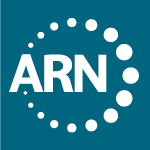Health Policy Digest for November 2020
We are pleased to present the November issue of the ARN Health Policy Digest. This member benefit provides updates on health policy and legislative and regulatory developments that may be of interest to rehabilitation nurses.
| 2020 Election Overview On Tuesday, November 3, Americans went to the polls to elect the next President and a new Congress. Though the results were inconclusive on Election Night, and some races remain too close to call, it is now clear that former Vice President Joe Biden has won the Presidency, along with his running mate Sen. Kamala Harris. However, President Trump has not yet conceded the election, and several legal challenges and at least one statewide recount are still pending. The Electoral College will not formally cast its votes until mid-December. Democrats will maintain control of the House of Representatives, though with a significantly slimmer majority. Control of the Senate is still undetermined, as both Georgia Senate seats are proceeding to runoff elections on January 5, 2021. If Democrats win both races, they will evenly split the chamber's seats, with the Vice President-elect breaking the tie. If Republicans win one or both, Sen. Mitch McConnell (R-KY) will remain the Majority Leader. On November 13, the Nursing Community Coalition (NCC) sent a welcome letter to the Biden-Harris Transition Team offering to act as a resource to ensure that the nursing voice is included in the transition and noting key policy priorities for the nursing community. Read NCC's letter to the Biden-Harris transition team. CMS Issues 2021 Durable Medical Equipment Proposed RuleOn November 4, CMS issued the Calendar Year (CY) 2021 proposed rule outlining payment rules and policies for Durable Medical Equipment, Prosthetics, Orthotics, and Supplies (DMEPOS). The rule includes a variety of provisions impacting equipment used by people with disabilities, including the institution of competitive bidding for off-the-shelf knee and back braces, classification of external infusion pumps and continuous glucose monitors as durable medical equipment, and a permanent exclusion of complex rehabilitative technology (CRT) power and manual wheelchairs and their related accessories from competitive bidding. Read the proposed rule and a fact sheet from CMS. HHS Proposes Regulatory Sunset RuleOn November 4, the Department of Health and Human Services (HHS) released a proposed rule that would require regulations to expire after ten years if not re-approved by the Department. This "regulatory sunset" rule would have a dramatic impact on HHS operations and would require staff to review each regulation issued by the Department and confirm whether to keep the rule or allow it to expire, with certain exceptions. Read the proposed rule and a press release from HHS. ARN Comments on NIH Rehabilitation Research PlanOn November 16, the Disability and Rehabilitation Research Committee (DRRC) submitted comments on proposed themes and objectives for the National Institutes of Health (NIH) Rehabilitation Research Plan. The plan, last issued in 2016, outlines strategic goals for rehabilitation research across the Institutes and Centers (ICs). Nearly all the ICs conduct some level of rehabilitation research. Read the DRRC letter. Senate Releases FY 2021 Government Funding BillsOn November 10, the Senate Appropriations Committees released 12 bills with Fiscal Year (2021) funding proposals for the federal government. Traditionally, these bills are released much earlier in the year and are debated within committees and the full Senate via markup sessions, but the Senate will now proceed directly to negotiations with the House over next year's funding. Government funding is currently set to expire on December 11, 2021; it remains to be seen whether Congress will reach a bipartisan compromise for a full FY's funding or extend funding temporarily via a Continuing Resolution. The Senate bill would provide a $6.16 million increase to Title VII Nursing Workforce Development Programs (for a total of $266 million) and an $8.86 million increase to the National Institute of Nursing Research. ARN's chart tracking proposed funding levels for other key programs is available here. Read the text of the L-HHS-Ed bill and a fact sheet from the Appropriations Committee. |
| Rehabilitation Nursing Sign-On Letters As part of its advocacy efforts, ARN routinely issues letters of comment and is frequently asked to sign onto letters relevant to the rehabilitation and nursing communities. You can find a list of all those letters on our advocacy webpage. |
If you haven't already, we recommend that you visit ARN's COVID-19 Resource page on the ARN website for the latest information and resources for rehabilitation nurses.
Did you see something recently that would impact rehab nurses and/or patients? Share your health policy/advocacy news by emailing it to This email address is being protected from spambots. You need JavaScript enabled to view it..

